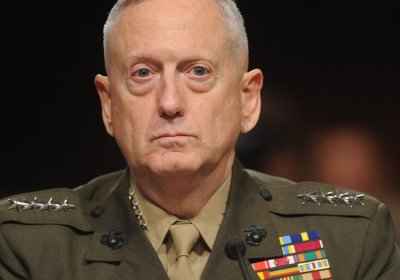Ian Angus, editor of Climate and Capitalism, takes a look at six new books of interest to ecosocialists — from pro-corporate “environmentalism” to the struggle of indigenous peoples in Latin America and the scramble for Africa’s natural resources.
Imperialism
A brand new World Bank report, The Changing Wealth of Nations 2018, offers evidence of how much poorer Africa is becoming thanks to rampant minerals, oil and gas extraction.
Yet World Bank policies and practices remain oriented to enforcing foreign loan repayments and transnational corporate (TNC) profiteering — thus maintaining the looting.
What’s the fate of Cuba in the age of Trump? It is not an easy question to unravel, but Canadian author and journalist Arnold August provides some answers in his latest book, Cuba-US Relations: Obama and Beyond.
Venezuela has hit back at the United States after it issued fresh threats to impose new sanctions against Venezuelan officials while attempting to derail the dialogue between Venezuela’s government and opposition.
The military intervention that the United States political and Pentagon establishment never talked about is suddenly in the news after a joint patrol comprising 12 US troops and 30 Nigerien soldiers was attacked by a small group thought to be an ISIS affiliate known as ISIS in the Greater Sahara (ISIS-GS).
The incident itself was little mentioned until US President Donald Trump – after two weeks of silence on the matter – offended the family of soldier La David Johnson in a characteristically insensitive condolence call to his widow Myeshia Johnson.
“Brexit” and the recent US presidential election are symptoms of the crisis capitalism has wrought. People are hurting and it has become obvious that instead of “trickle down” we have, in Arundhati Roy’s words, “gush up”. Even mainstream media carry articles suggesting neoliberalism has had its day.
When you think of Western capitalism and imperialism, what usually comes to mind are aggressive superpowers such as the US, Britain, France or Germany. Northern European nations such as Norway, Denmark, Finland and Sweden, on the other hand, are seen as good-natured and insular, often used as examples of the way governments around the world should treat their citizens.
Did you know that the Trump administration almost went to war with Iran at the start of February?
Perhaps you were distracted by General Michael Flynn’s resignation as national security adviser or by President Donald Trump’s latest online jihad.
Venezuela’s Foreign Ministry issued a statement on February 14 denouncing a move by the Trump administration to sanction Venezuelan Vice-President Tarek El Aissami over drug trafficking allegations.
On February 13, the Treasury Department froze all of El Aissami’s alleged assets in the US under the Foreign Narcotics Kingpin Designation Act. This makes Venezuela’s vice-president the top-ranking official of any country to be sanctioned in this way.
January 25 marks 12 years since I left my beloved country, Iraq. The day I left I didn't know that over a decade later I would still be abroad, forever a foreigner.
I had a dream that things would get better, that I could go back and live there. That I could walk around freely in a stable country. None of us foresaw the horrors that awaited all, especially the ones who stayed.
Who Rules The World?
By Noam Chomsky
Hamish Hamilton, 2016
Noam Chomsky, who turns 88 this month, revolutionised the study of linguistics in the second half of the 20th century, starting with books like Syntactic Structures (1957) and Aspects of the Theory of Syntax (1965). He remains professor emeritus at the Massachussetts Institute of Technology.
Imperialism in the Twenty-First Century: Globalization, Super-Exploitation, and Capitalism’s Final Crisis
By John Smith
Monthly Review Press, 2016
On April 24, 2013 a clothing factory in Rana Plaza, Dhaka, Bangladesh collapsed, killing 1133 workers and injuring 2500 others.
This image of super-exploited, fatally-trapped workers, hemmed in by national borders and racist migration policies preventing them from moving to safer, better-paid work opens John Smith’s book — and illustrates his outrage.
- Previous page
- Page 2
- Next page











